3 simple reasons why UConn makes sense as the first FBS program to punt on the 2020 season
Newsletter back! Let's talk about...UConn?
Hi there! Let’s talk about a piece of news from Wednesday. No, not the Big Ten releasing its revised 2020 schedule. Schedules don’t mean much when you can’t safely play a season.
Nope, I want to talk about UConn football. Hopefully I do not write that very often in here.
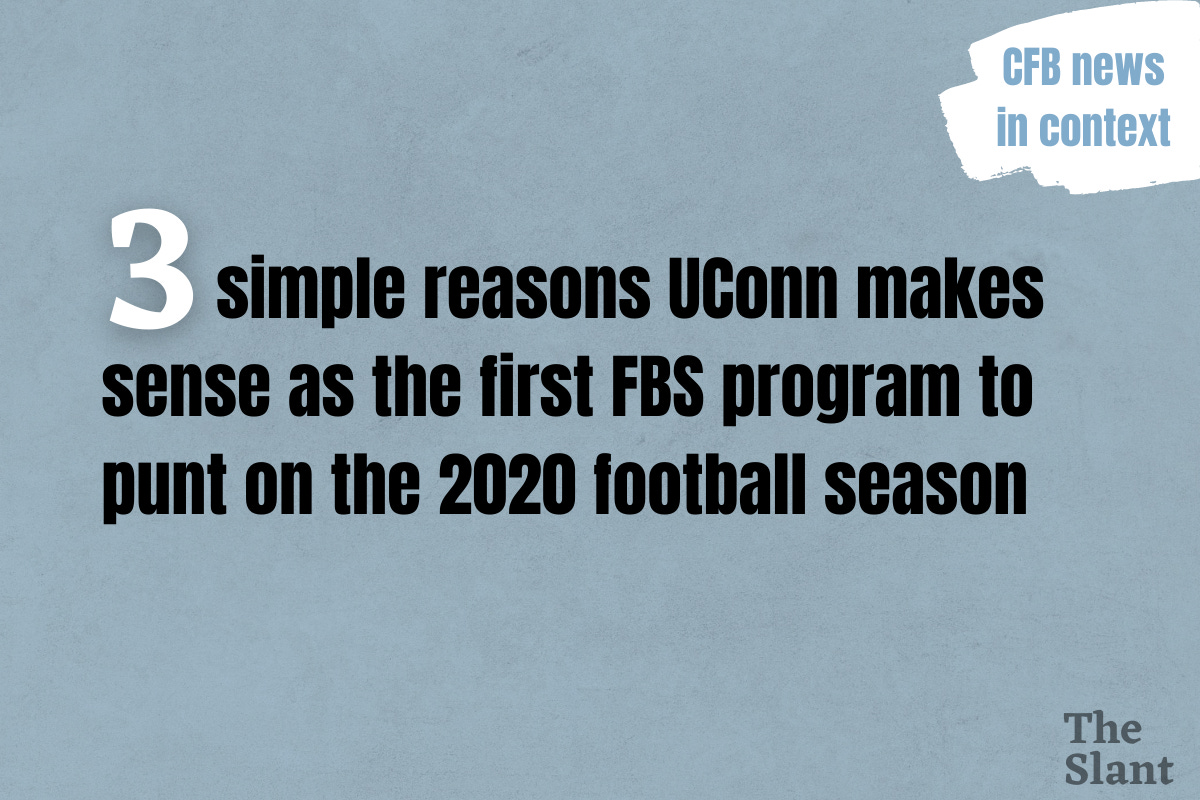
On Wednesday, UConn became the first FBS program to announce it won’t play in 2020.

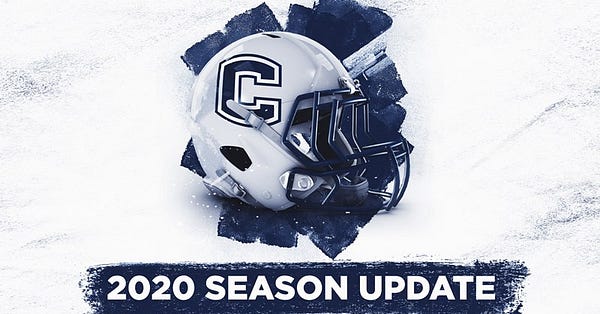
The full announcement doesn’t even mention anything about playing in the spring. This looks like a full-on cancelation. “We will use this time to further player development within the program and gear ourselves to the 2021 season," head coach Randy Edsall says in the team statement.
Here are a few quick reasons why UConn took the hit even as conferences around the country proceed with an attempt at playing football during a pandemic.
UConn doesn’t have the financial incentives to play that many other FBS schools do
When we’re thinking about how college athletic departments make decisions, money has to be the first thing we consider. It makes no sense to pretend otherwise.
Like the Ivy League, which was the first Division I conference to push football to 2021, UConn does not get a big payout from a TV contract. The Big Ten, the conference announcing on Wednesday its tentative attempt to fit in a season in 2020, handed out over $50 million in TV revenue to members last season. UConn’s new contract with CBS Sports Network was projected to maybe net the school “around $500,000 per season.”
To be sure, the UConn athletic department is no mom-and-pop shop. The Huskies still spent more than the average AAC (the conference they just left) team on football.
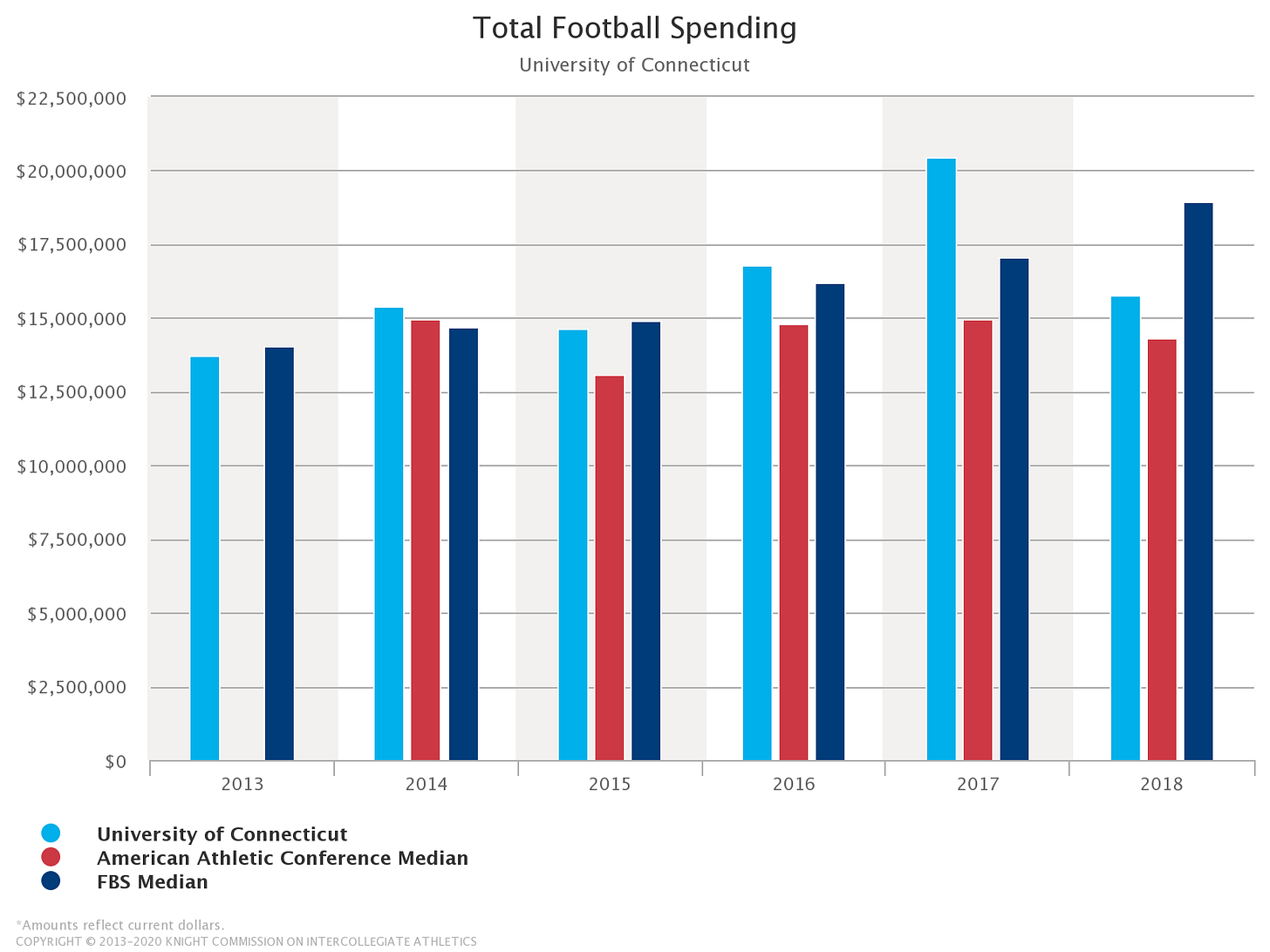
But now that the Huskies are going it alone in football as an independent, there was no gravy train waiting for them if they did play this season, one where tickets sales also won’t be an option.
Randy Edsall is in a weeeird career spot
UConn’s head coach is in his second go-round at the school, and it’s not going nearly as well as the first. Edsall shepherded the Huskies from FCS to FBS in the early 2000s and was rewarded with four straight bowl games, including a Fiesta Bowl appearance.
The UConn he found upon his return in 2017 was not the same as the one he left in 2010. The Huskies regressed immediately upon his exit, and the landscape of college football moved around them. Edsall’s final four years at UConn were, by Simple Rating System metrics, some of the best in program history by a mile. The program’s on-the-field performance steadily got worse with Edsall gone.
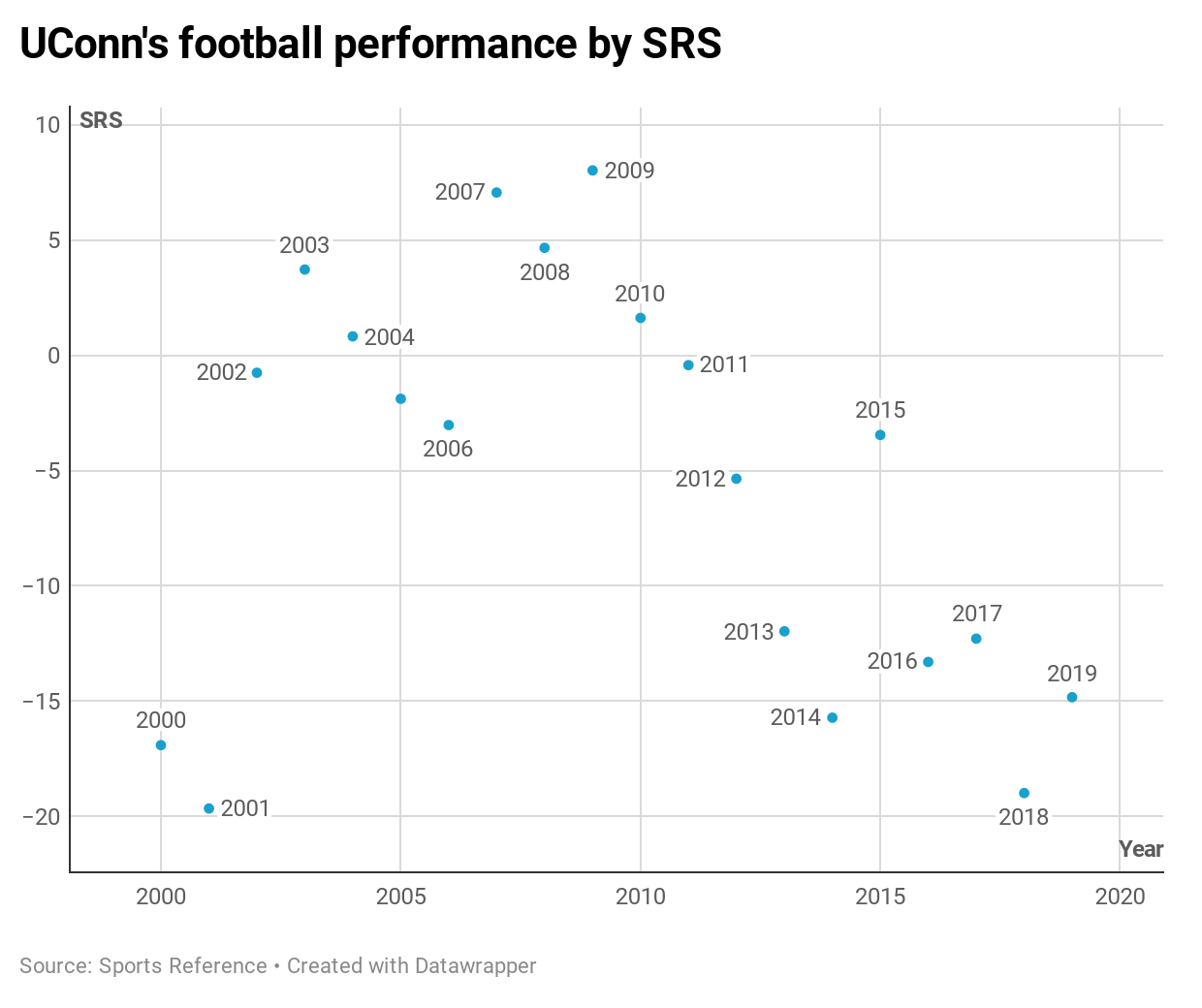
When Edsall returned in 2017, the school was in a new conference (more on that in a sec) and was in deep trouble. Things didn’t get better after he arrived.
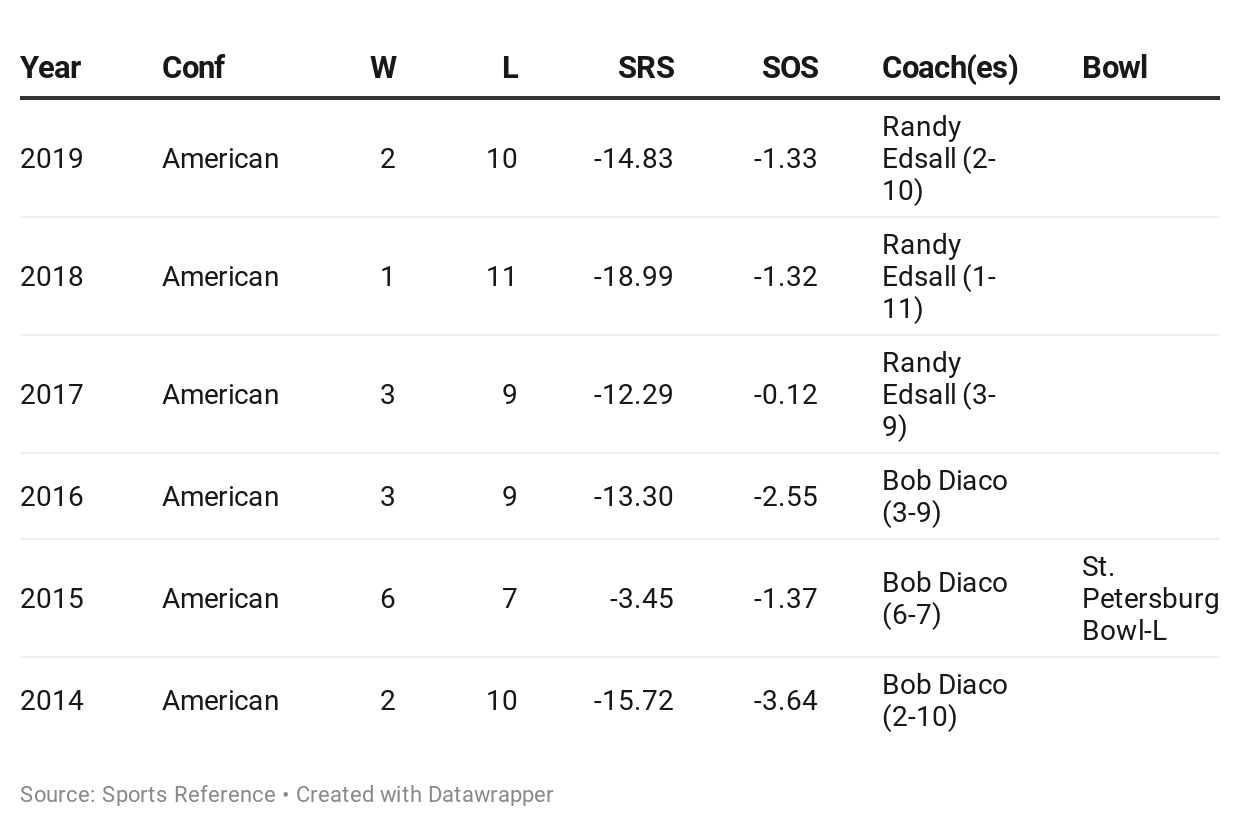
Since his return to Storrs, Edsall has been occasionally outspoken on one issue you wouldn’t expect from any college football coach, let alone a noted disciplinarian who banned players from wearing hats, earrings and baseball caps when he arrived at Maryland. Here Edsall is advocating for players to be paid in 2018:

And upon announcing UConn’s cancellation of the 2020 season, he was refreshingly pro-player:

Regardless of whether you believe he might be hamming it up or if you really think he’d be acting like this if he were in charge of a Power 5 team, Edsall is still saying things other college coaches aren’t. It’s very weird.
And just to be sure, this is the same coach who just a few months ago swore off taking in transfers, saying “they’ve got issues.” In conclusion:


UConn isn’t a member of a conference
Yes, this is all tied together. UConn would probably be in a conference if it had a better team. If it had a better team, it might make more money and give administrators a reason to press on with the season.
UConn’s move back to the Big East, which took effect this summer, is why we’re here today. The Big East doesn’t compete in football anymore. The school’s decision to return to the conference anyway is a move to prioritize what UConn does best: women’s (and men’s) basketball. If that meant football was kinda tossed to the wolves, that’s a cost UConn was evidently ready to stomach, especially as people openly question if they’ll just move back to FCS already.
Beyond giving UConn a lack of financial motivation to play the season, not having a conference affiliation presents another hurdle: Who’s on the schedule? Power 5 conferences are determining their own schedules now, with some prohibiting playing any games against teams that aren’t in your conference. Given that five of UConn’s 12 scheduled opponents for 2020 were in Power 5 conferences, that left as many as five open dates to fill. For UConn, that made for an easy decision: let’s try again in a year or so.
Thanks for reading! If you like what you see, I hope you’ll tell a friend and follow along on Instagram.